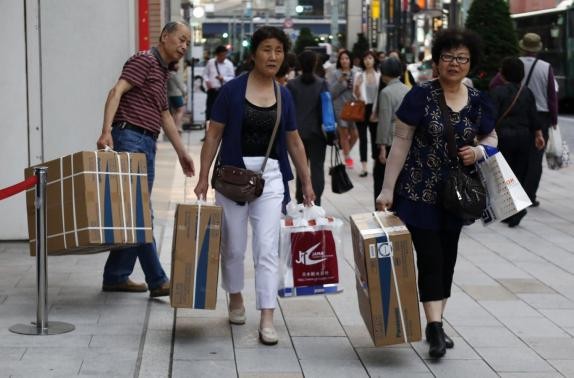Many Chinese love to visit Japan to shop. Japanese high-tech gadgets such as camcorders, cameras, watches and electrical items such as rice cookers are perennial Chinese favorites.
Reports say that due to heavy buying by Chinese, many Japanese Duty Free shops are running out of products, even those costing as much as 10,000 yuan ($1,601).
Many observers believe that the massive Chinese buying is the outcome of the falling yen, an expansion of Duty Free shops, and Japan's sagging economy. Some overseas media outlets even called it "backdoor diplomacy" that could alleviate tensions between China and Japan.
Japanese Prime Minister Shinzo Abe's economic policy known as "Abenomics" is said to be behind the devaluation of the yen. Blame the devaluation on loose monetary policy, but the weaker yen has helped attract foreign visitors.
The Japanese have also eased refund procedures and eliminated agency fees so Chinese tourists can buy products at lower prices. No wonder a flood of Chinese tourists is inundating Japan's stores.
"The effects of Abenomics on Japan's economy hasn't manifested as much as people initially expected," said Yuichi Kodama, chief economist at Meiji Yasuda Life Insurance Co. in Tokyo.
Most Chinese tourists believe Abenomics does not--and need not--make sense because they are buying quality products at relatively low prices. The key to successful business is reliability.



























